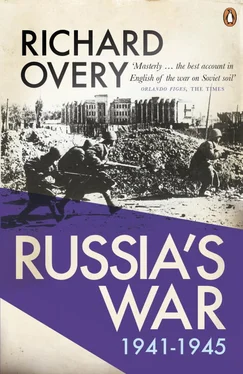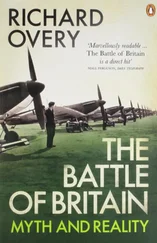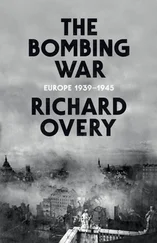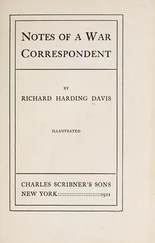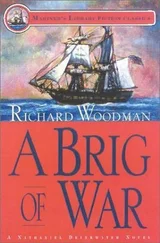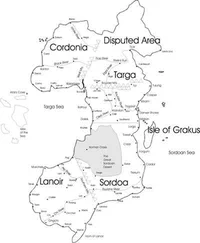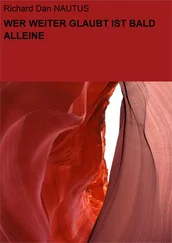Richard Overy - Russia's War
Здесь есть возможность читать онлайн «Richard Overy - Russia's War» — ознакомительный отрывок электронной книги совершенно бесплатно, а после прочтения отрывка купить полную версию. В некоторых случаях можно слушать аудио, скачать через торрент в формате fb2 и присутствует краткое содержание. Город: London, Год выпуска: 1999, ISBN: 1999, Издательство: Penguin Books Ltd, Жанр: military_history, на английском языке. Описание произведения, (предисловие) а так же отзывы посетителей доступны на портале библиотеки ЛибКат.
- Название:Russia's War
- Автор:
- Издательство:Penguin Books Ltd
- Жанр:
- Год:1999
- Город:London
- ISBN:978-0-14-192512-7
- Рейтинг книги:4 / 5. Голосов: 1
-
Избранное:Добавить в избранное
- Отзывы:
-
Ваша оценка:
- 80
- 1
- 2
- 3
- 4
- 5
Russia's War: краткое содержание, описание и аннотация
Предлагаем к чтению аннотацию, описание, краткое содержание или предисловие (зависит от того, что написал сам автор книги «Russia's War»). Если вы не нашли необходимую информацию о книге — напишите в комментариях, мы постараемся отыскать её.
[Contain tables. Best viewed with CoolReader.]
Russia's War — читать онлайн ознакомительный отрывок
Ниже представлен текст книги, разбитый по страницам. Система сохранения места последней прочитанной страницы, позволяет с удобством читать онлайн бесплатно книгу «Russia's War», без необходимости каждый раз заново искать на чём Вы остановились. Поставьте закладку, и сможете в любой момент перейти на страницу, на которой закончили чтение.
Интервал:
Закладка:
Richard Overy
RUSSIA’S WAR
Preface
The story of the Soviet war effort between 1941 and 1945 is one of the most remarkable, not just in the modern age, but in any age. For a long time it was a story shrouded in secrecy, little known or understood in the West. Over the past decade or so that situation has changed. Few would now contest the view that the Soviet war effort was the most important factor, though not the only one, in the defeat of Germany. The focus of the debate has now shifted to how the Soviet Union achieved that victory, and on this issue there is still no scholarly consensus. There is now a wealth of evidence not available twenty years ago to help to answer that question. Much of Russia’s War draws on that evidence, which is now widely available in the West. It shows both sides of the war: the war against Germany and the war against Soviet society; the military conflict and the terror.
This book was produced to accompany a television series that has succeeded triumphantly in bringing the Soviet war effort to life. ‘Russia’s War’, a series of ten fifty-two minute documentaries produced and financed by IBP Films in London in association with Victory Series in Russia, was inspired by the changing history of the war. The documentaries show all sides of the war, from military defeat and incompetence to military triumph, from simple Soviet patriotism to the terror of the regime against its own people. The films were made using materials made available from hitherto-closed film sources in the former Soviet Union. They are intercut with testimony from survivors of the war. The interviews were conducted in Russia in 1995, with the exception of a number which were made much earlier for Soviet films.
The inspiration behind the project lay with the executive producer, Judith De Paul, who succeeded in winning the co-operation of five senior Russian film directors and a co-executive producer in Moscow, Alexander Surikov. The films were produced in collaboration over a two-year period in 1994 and 1995. The book was written in 1997 and incorporates further material that became available from Russia in the two preceding years. I am particularly grateful for all the unstinting encouragement that Judith De Paul has given me. I would also like to thank the supervising editor of ‘Russia’s War’, Nick Barnard, who has been unfailingly helpful over the six months it took to produce the book. Vladimir Bouilov has translated at a moment’s notice anything in Russian that I needed, for which I am more than thankful. My publisher, Peter B. Kaufman, has been patient and long-suffering enough. The usual pre-emptive confession of responsibility for errors and misinterpretations is more than necessary here as I trespass into less familiar territory. A final thanks, as ever, to my family.
Richard Overy London, May 1997Introduction
This book is the direct offspring of a remarkable series of television documentaries that were made in London during 1995 with the co-operation of a number of distinguished Russian film-makers. The film records used in making the series were made available from the KGB film collection and the Presidential Archive, and they are unique in their range and historical quality. The very fact that ‘Russia’s War’, the name given to the television series, could be made outside Russia at all reflects the greater openness between Russia and the West following the collapse of the Soviet Union in 1991. The objective of the films is to give Western audiences for the first time as full a visual account of the Soviet war effort as the film sources will allow.
The book follows closely the structure and substance of the films and takes its title from the series. Like the films, the purpose of the book is to bring to a non-Russian readership a history of the Soviet war effort based on the extensive revelations made during the decade after Mikhail Gorbachev declared the age of glasnost . It does not pretend to offer startling new discoveries. It is a summary of the present state of the debate in what has become an extraordinarily unstable historical landscape. Every month brings new discoveries and new publications. The history of the former Soviet Union is in ferment. In twenty years’ time it may be possible at last to write something approaching a definitive history. Current writing has a provisional air to it, and this book is no exception. Nonetheless, the history of the Soviet war effort between 1941 and 1945 is well worth writing. The spate of new material has not failed to make the subject more exhilarating and more vivid. None of the human drama has been lost. In many ways the revelations have fortified it.
The established story of the Soviet war effort, of the ‘Great Patriotic War’, as it came to be called, was allowed to solidify in the decade after 1945 and remained remarkably intact down to the 1980s. In official circles the tale of heroic socialist struggle against the fascist demon remained intact down to 1991. Soviet writing on the war was carefully censored, and the central archives of the conflict remained closed or were restricted to only the most privileged of officially favoured historians. To give but one example: in the 1960s Marshal Zhukov, Stalin’s Deputy Commander in Chief for much of the war, wrote two volumes of memoirs. They were heavily doctored. The first edition took three years to prepare and was shown, briefly, to Leonid Brezhnev, the Soviet leader, for final approval. Zhukov was told to include the fiction that Brezhnev took part in an incident on the southern front. When the first edition was published Zhukov complained, ‘That book, it is not mine.’ Even the smallest changes were insisted upon. Where Zhukov wanted to call the failure in the summer of 1941 a ‘rout’, he was made to write ‘retreat’ instead. 1
Zhukov’s memoirs finally appeared in a tenth, and full, version in 1990. Other memoirs have been released for the first time or have been freed from the censor’s red pencil. The full version of Khrushchev’s taped interviews, many of which were suppressed in the 1960s when his sanitized memoir was published, has now become available. 2Much of the testimony on which it was necessary to rely even ten years ago has turned out to be misleading and distorted, even mendacious. When Zhukov challenged Marshal Yeremenko face-to-face about why he had lied in his memoirs about the role he and Zhukov had played at Stalingrad, Yeremenko replied that Khrushchev had asked him to. 3It may never be possible to penetrate entirely this veil of half-truths and distortions, but there is a genuine will in modern Russia to set the record straight. We now know much more than we did, and we can be more confident that what we do know is closer to historical reality.
There remain serious gaps, however. Wartime Foreign Ministry archives and the records of the main political and administrative organs remain closed, as do the records of the KGB/NKVD security apparatus and military or technical records regarded as still too sensitive to reveal. Even where greater candour has prevailed – the publication of official casualty statistics, for example – there remain frustrating gaps. The figures published in 1993 by General G. F. Krivosheyev give the fullest account yet available, but they omit three operations that were clear failures. The official figures themselves must be viewed critically, given the difficulty of knowing in the chaos of 1941 and 1942 exactly who had been killed, wounded or even conscripted. 4If the words ‘alleged’ or ‘suggested’ or ‘approximately’ appear with disarming regularity in what follows, this is testament to how much work still needs to be done to provide even an agreed-upon narrative for the war years.
Читать дальшеИнтервал:
Закладка:
Похожие книги на «Russia's War»
Представляем Вашему вниманию похожие книги на «Russia's War» списком для выбора. Мы отобрали схожую по названию и смыслу литературу в надежде предоставить читателям больше вариантов отыскать новые, интересные, ещё непрочитанные произведения.
Обсуждение, отзывы о книге «Russia's War» и просто собственные мнения читателей. Оставьте ваши комментарии, напишите, что Вы думаете о произведении, его смысле или главных героях. Укажите что конкретно понравилось, а что нет, и почему Вы так считаете.
